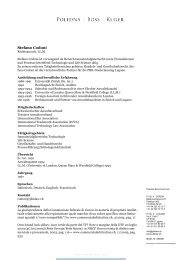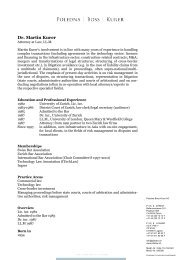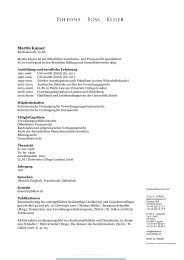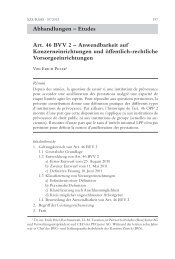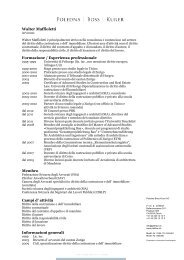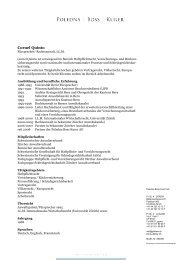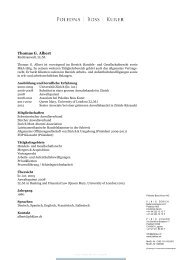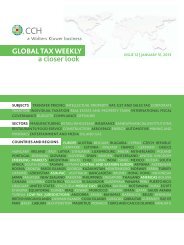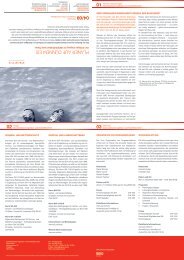721.8 kB - Poledna | Boss | Kurer
721.8 kB - Poledna | Boss | Kurer
721.8 kB - Poledna | Boss | Kurer
- No tags were found...
Create successful ePaper yourself
Turn your PDF publications into a flip-book with our unique Google optimized e-Paper software.
FATCA directly impacts on US citizens and inmany people's eyes it seems a very "un-American"thing to do. With all the talk about the need totackle evasion, concern about safeguarding the privacyof the individual seems to have been lost, andthis is why Kentucky Republican Rand Paul introduceda bill into the Senate on May 8 to repealthe anti-privacy provisions of FATCA, to effectivelymake the Act redundant.According to Paul, FATCA not only infringes basicconstitutional rights, but has also allowed the USGovernment to interfere with the sovereignty ofindependent nations. And most perplexing of all,when all is said and done, FATCA will probablyend up costing the Treasury more than it takes infrom Americans' foreign bank accounts. No doubtPaul's Republican colleagues would agree with hisassessment of FATCA as a "textbook case of a badlaw." Most Democrats probably do as well in theirheart of hearts.Paul's bill stands little chance of being enactedwhile President Obama is in the White House,but it is unlikely to be the last attempt to repealFATCA, not least because the Congress can be expectedto object to the reciprocal nature of theIGAs that are being hammered out by the TreasuryDepartment with multiple foreign governments.The original FATCA legislation did not includea specific reciprocal obligation: this is somethingthat has emerged during inter-governmental discussions.The Treasury says that the IGAs do notcount as treaties, and that it does not thereforehave to submit them to the Senate for approval;others may disagree, and say that the Treasury hasbeen making up law as it goes along.Presumably President Obama's inclusion of areciprocal FATCA in his budget was based onadvice from worried lawyers that reciprocalIGAs may be unenforceable. For that matter,IGAs themselves may have legal problems intarget countries: in May 2013, Canadian lawyerswere beginning to suggest that a FATCAIGA might be unconstitutional, although otherlawyers qualified this opinion. We may call thePresident's proposed measure DATCA - the DomesticAccount Tax Compliance Act. Of course,nothing in any of the President's recent budgetshas become law, so DATCA will presumably remainjust an intention. But the disjunction betweenthe reciprocal IGAs and domestic privacyremains. Sooner or later it will have to be resolved,and it's hard to see how this should notinvolve the Congress.Nobody knows what FATCA will achieve. Interms of revenue versus costs, there are all kindsof wild estimates, but even the Treasury doesn'tseem to think it will reap more than a few billiona year, while recent estimates of the costs (for FIIs)have ball-parked around USD7.5bn. Anecdotally,something else FATCA is achieving is a reductionin the number of FIIs that are prepared to take onUS clients; and it may be reasonable to supposethat US citizens and corporate investors are busylooking for, and presumably finding, loopholes20



